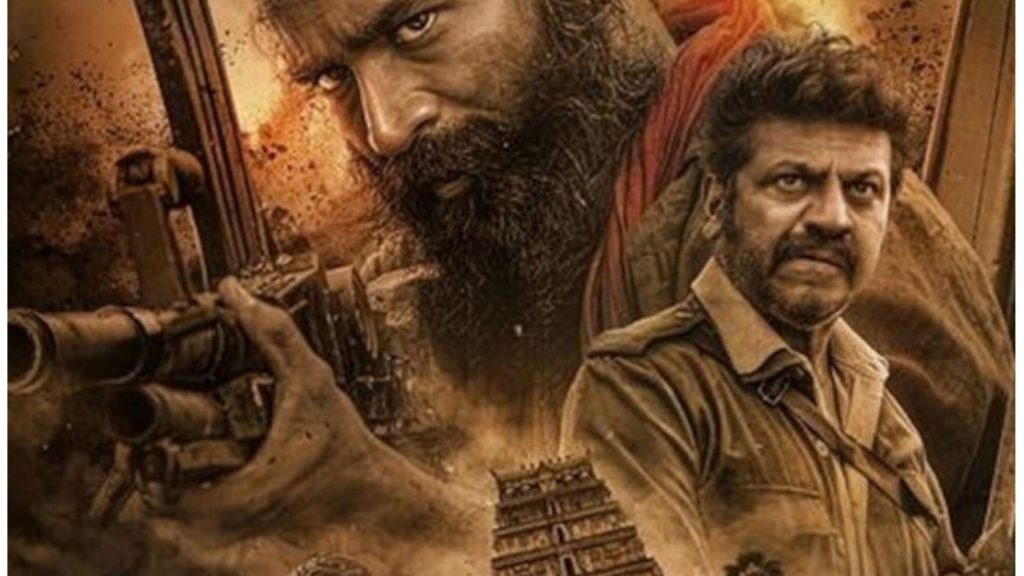Captain Miller Netflix February 9th
Arun Matheswaran’s Dhanush starrer ‘Captain Miller’ is a period drama that discusses present-day issues. Amidst the loud action and thrills, the dialogues attacking menaces like caste politics, totalitarianism and religious bigotry remain audible. What else can you expect from a movie and its protagonist that bear the nom de guerre of Eelam’s first Black Tiger?
,At a time when films like Nayanthara’s ‘Annapoorani’ face backlash from far-right outfits on OTT platforms ‘Captain Miller’ boldly incorporates positive propaganda. Much like how Analeesan, aka Eesa (Dhanush), a tribal, enters a temple built by his predecessors and is now forbidden to them. In the final act, Captain Miller guiding the tribals into the temple’s sanctum sanctorum may be seen as the filmmaker’s wishful thinking for necessary change in the real-life narrative.
Arun adopts a non-linear narrative, and the script, co-written with Madhan Karky, never falters. Even with creative liberties, referencing the real Lankan Captain Miller active during 1983-87 and Ernesto ‘Che’ Guevara (as Dr Ernesto), or a cliched cinematic end, the script stands strong, mirroring the film’s protagonist.
When the film begins, Eesa’s mother, narrating the legend of the temple built by the tribals, highlights how those who do good for their people transform into legends and, eventually, deities. Unfortunately, ‘god’s’ own people are later barred from entering these places of worship. Later in the climax, when Analeesan attains godly status among his people as Captain Miller for saving them from the Britishers and the Raja, and also for securing their entry into the temple, it seems as if the director aims to convey the notion that, with time, Analeesan’s people might build another temple in his honour, only to be barred from entering it.
When the film begins, Eesa’s mother, narrating the legend of the temple built by the tribals, highlights how those who do good for their people transform into legends and, eventually, deities. Unfortunately, ‘god’s’ own people are later barred from entering these places of worship. Later in the climax, when Analeesan attains godly status among his people as Captain Miller for saving them from the Britishers and the Raja, and also for securing their entry into the temple, it seems as if the director aims to convey the notion that, with time, Analeesan’s people might build another temple in his honour, only to be barred from entering it.
Siddhartha Nuni bathes his tanned frames in motivated lights, creating impactful scenes. However, this excessive fondness for light becomes bothersome in some of the exquisitely crafted night sequences. Velmathi’s (Priyanka Arul Mohan) base was exorbitantly lit for a rebel camp even when the art department did a good job of hiding those LEDs in plain sight. The handheld movements during action sequences effectively accentuate scenes.

At a time when filmmakers explore the beauty of long takes, Arun and his editor from ‘Rocky,’ Nagooran Ramachandran, opt for precision-made cuts. The opening’s colourful festival montage is fresh and it foreshadows what is to come.
The Mad Max-style chase post-interval is a synchronised dance of action, camera, cuts, cast, and background score by G. V. Prakash Kumar. With this ensemble, the thrills in ‘Miller’ never disappoint. Having said that, in a struggle to contain this period saga into two and a half hours, Nagooran loses his fine touch towards the end and when it is added with the high-octane action sequence, the film relinquishes the rhythm and breathing space.
Arun and Madhan’s script lends power to its women unlike some of the much-celebrated period dramas from other South Indian film industries. Nivedhithaa Sathish as Miller’s gang member, Priyanka as a doctor with royal lineage aspiring to contribute to Indian independence, and Aditi Balan as Shakunthala play pivotal roles as strong, independent women. Dhanush’s character is layered but never poses a challenge to his prowess.
Arun Matheswaran and Dhanush’s collaboration, ‘Captain Miller,’ is a must-watch in theatres. Don’t wait for it to land on OTT; you know why!
A Killer Paradox Netflix February 9th
South Korean movie ‘Parasite’ fame actor Choi Woo-shik is all set to be back with his upcoming K-drama ‘A Killer Paradox’ on Netflix. Here is everything you need to know about this Korean drama.
A Killer Paradox spins a suspenseful narrative, based on a man drawn into the world of serial killers, and a witty and talented detective. Based on the webtoon by Kkomabi, the drama introduces Choi Woo-shik as Lee Tang, a regular college student who stumbles upon an extraordinary talent for the ability to identify evil after accidentally killing a serial killer and getting involved in a murder mystery.
The drama promises a thrilling ride with twists and turns that keep viewers guessing. The constantly shifting landscape of truth will leave you on the edge of your seat. The series subtly touches upon themes of crime, thriller, and suspense with a blend of comedy adding depth and resonance to the story. Here is everything you need to know about this Korean drama A Killer Paradox:

A Killer Paradox Plot
A Killer Paradox dives into a thrilling cat-and-mouse game between an ordinary man and a tenacious detective, sparked by a seemingly accidental murder. Lee Tang, played by the charismatic Choi Woo-shik, finds his life turned upside down after unintentionally taking a life. Yet, a shocking twist emerges – the victim was a notorious serial killer. Torn between guilt and a desire for justice, Lee grapples with the consequences of his actions. Meanwhile, Detective Jang Nan-gam, portrayed by Son Suk-ku, relentlessly pursues the truth, determined to unmask the killer behind the seemingly impossible situation.
A Killer Paradox Teaser
The teaser for A Killer Paradox kicks off with a fateful day that shatters Lee Tang’s world when he accidentally commits a murder. But a twist emerges: Lee Tang develops a strange ability to see the darkness in others, the evil hidden beneath the surface.
Enter Jang Nam-gam, a detective fueled by suspicion and unwavering pursuit of the truth. He sees through Lee Tang’s facade, sensing the hidden depths of his actions. As Lee grapples with the weight of his choices, the consequences begin to coil around him, tightening their grip with each passing moment.
The drama delves into complex themes of morality, justice, and the burden of choice. Lee’s accidental act forces him to confront his sense of right and wrong, questioning the line between justice and punishment. Detective Jung, driven by a strong sense of duty, embodies the pursuit of truth, even when it challenges established narratives. The series also explores the psychological impact of trauma and the extent people go to protect themselves and their loved ones.






































